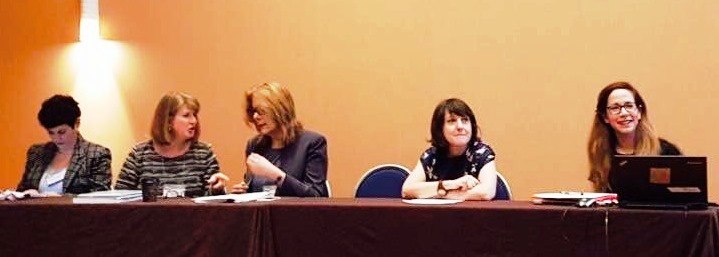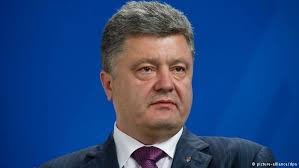I was part of six panels at the International Studies Association (ISA) convention. One of the more interesting ones was on Russia and NATO. It was organized by Kimberly Marten (Barnard College) and included, along with me and Kimberly, Deborah Yarsike Ball (Lawrence Livermore National Laboratory), Olga Oliker (CSIS), and Elizabeth Wishnick (Montclair State University). Each panelist was asked to reflect on where they thought Russia and NATO relations were going based on their own expertise.

Left to right: Elizabeth Wishnick, Deborah Yarsike Ball, Kimberly Marten, Olga Oliker, and Ayşe Zarakol.
Deborah spoke about issues related to cyber warfare. Olga talked about developments stemming from the Ukraine crisis. Elizabeth mentioned how Russia-NATO tensions were likely to impact Arctic security and governance. I discussed the implications for NATO of the recent Turkish-Russian rapprochement and their military coordination in Syria. Kimberly spoke about ways the Trump administration could manage tensions between Russia and NATO, saying that because Putin's intentions were not clear, the United States faced a classic security dilemma (spiral of increasing security measures). She argued against a recent RAND study that called for a massive military build-up in the Baltics and instead called for a combination approach involving “tripwires” and “creative deterrence-by-denial.” She said that sanctions and cyber strategies are among the West’s best tools for addressing Kremlin pressures.
There was lively debate in the room about the best methods for dealing with the Russia-NATO situation. Olga, and especially Deborah, were skeptical that there was anything the United States could do to “reassure” Russia. Olga argued that there was a “Goldilocks” problem—that the West could be neither too aggressive nor too conciliatory toward Russia. A question came up about how representative Putin was of Russia and how much of the problem NATO faced had to do with his personal leadership style. Kimberly suggested that Putin was not a “chess strategist” but rather a “judo player”—always looking for opponents’ weak points. The panelists generally agreed that Putin was good at playing the “hands he was dealt” and that many of his choices probably reflect Russia’s long-term national interests, so things might not be that different if Putin was not the person in power. I would say that this notion is especially true when it comes to Russia’s preoccupation with its international standing.
Photo credit: Paul Goode
Also see:
Academic Conferences in an Era of Populist Nationalism (ISA Dispatch 1/3)
Plus ça change, plus c'est la même chose? Maybe not any more (ISA Dispatch 3/3)










